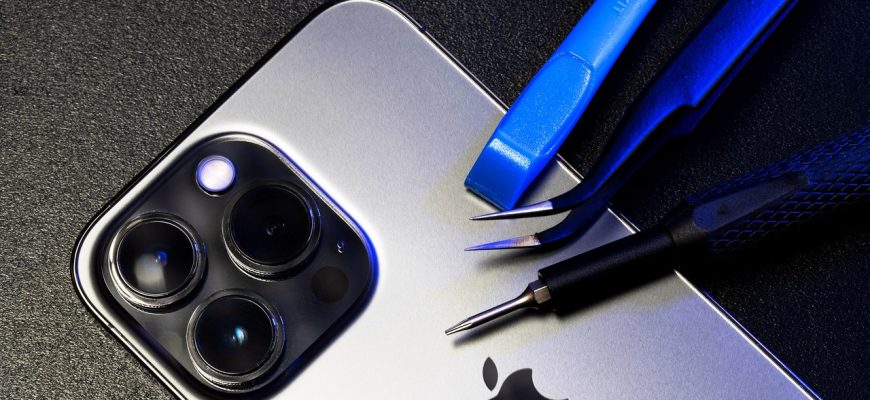Parts-pairing, also known as “serialization,” works by linking a phone’s serial number with the serial number of an internal part so that the phone notices whether its screen, battery, or a sensor has been replaced. “In the iPhone, the way it shows up most perniciously is that if you try to swap two screens from two working iPhones,” says Chamberlain, adding the swap either won’t work because the serial numbers don’t match, or customers will be bombarded with warnings from their iPhone telling them their screen is not verified.
This is driving independent repair shops out of business, she claims, because only Apple-authorized technicians can reassign these serial numbers to complete the repair. This is not just a consumer issue, but an environmental one. Last year, 5.3 billion mobile phones were thrown away, estimates the Belgian nonprofit The WEEE Forum, which studies e-waste.
Serialization is theoretically illegal in France according to a 2021 anti-waste law. “The law says that manufacturers must allow consumers to repair their device without discriminating against any repair shop,” says Laetitia Vasseur, director of French campaign group Stop Obsolescence (HOP), whose December complaint about Apple led to the Paris prosecutor’s investigation. Apple’s failure to follow the law was the reason for HOP’s complaint, says Vasseur. “If they want to sell their phones to the French people, they have to conform with French law. If they don’t, they have to pay a fine.”
Apple has been hit with fines in France before. After the battery-gate scandal broke in 2017, France fined Apple €25 million ($27 million) for failing to tell consumers that updating their iPhone’s operating system would slow down the performance of older devices. That fine was also the result of a legal complaint made by HOP and had ripple effects around the world. Nine months later, Apple was told to pay $113 million in the US for throttling the battery performance of old iPhones, in a case that was brought by 34 states. Apple is still fighting the fallout from the battery-gate scandal. Two weeks ago, the company urged a UK tribunal to throw out a $2 billion class action that accused Apple of concealing defective iPhone batteries through software updates.
It took time to get going, but the right to repair movement now has real momentum. In 2021, the UK introduced rules requiring manufacturers to make spare parts more readily available. In 2022, the German state of Bavaria started offering €200 vouchers for anyone who gets their device repaired instead of throwing it away, copying a policy created by the state of Thuringia a year earlier. In 2023, the European Union also proposed forcing producers to repair products for up to 10 years after they are sold. And in the US, 46 of the 50 states have introduced some form of right to repair legislation, for different products, according to iFixit’s Chamberlain. She describes Minnesota’s recent right to repair legislation, which is on the verge of being passed, as the “broadest and strongest” yet in the United States.
But France remains well ahead. Since the anti-waste law was introduced in 2021, phone manufacturers have had to score their devices according to a national repairability index. Although France’s Environment Ministry sets the criteria, companies score their own products. iPhones tend to score between 6 and 7 out of 10.
Vasseur is hoping the Paris prosecutor can replicate the successful crackdown following the battery-gate scandal, when a stream of fines and lawsuits followed the French decision. But this time, she’s hoping for more than a fine. “Even more, we hope Apple will understand that it’s no longer possible to keep repairs for themselves,” she says.

